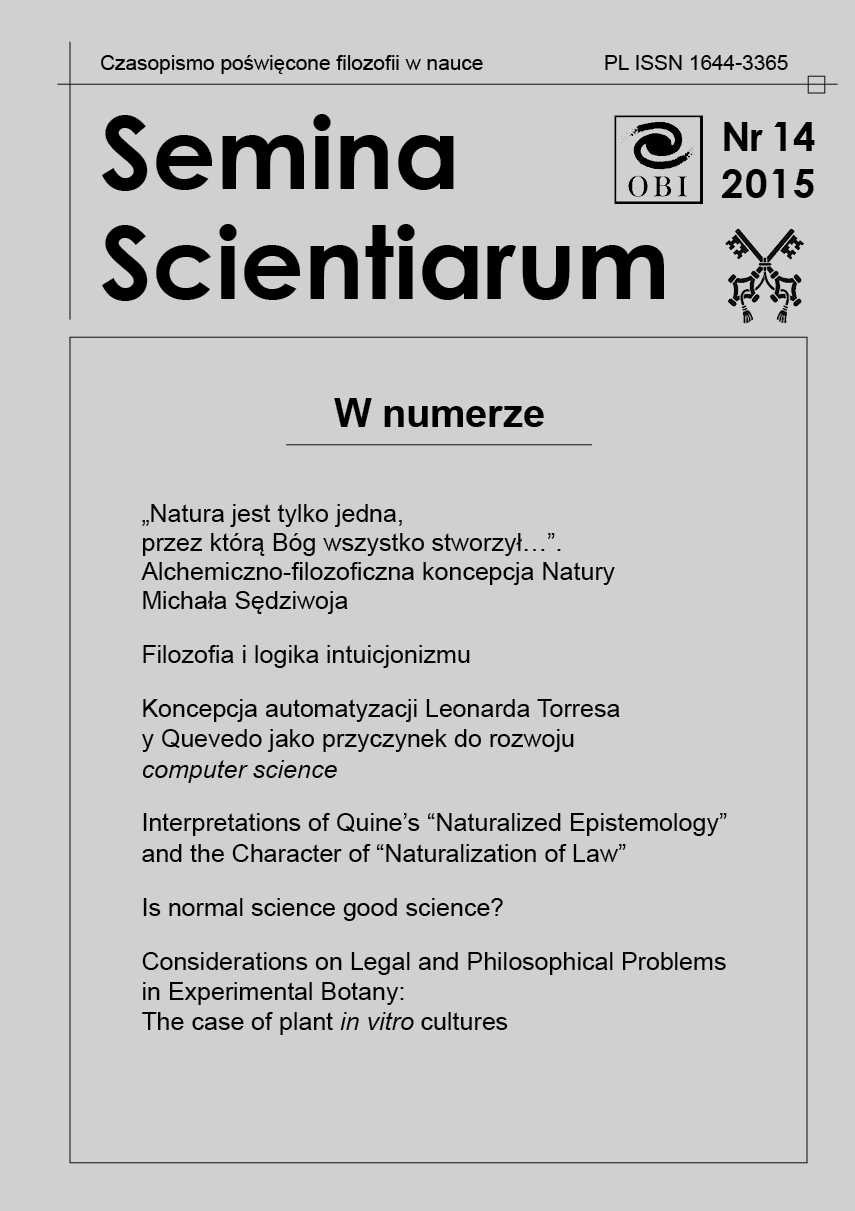Is normal science good science?
DOI:
https://doi.org/10.15633/ss.1080Słowa kluczowe:
normal science, Thomas Kuhn, Karl Popper, Paul Feyerabend, scientific revolutionAbstrakt
“Normal science” is a concept introduced by Thomas Kuhn in The Structure of Scientific Revolutions (1962). In Kuhn’s view, normal science means “puzzle solving”, solving problems within the paradigm—framework most successful in solving current major scientific problems—rather than producing major novelties. This paper examines Kuhnian and Popperian accounts of normal science and their criticisms to assess if normal science is good. The advantage of normal science according to Kuhn was “psychological”: subjective satisfaction from successful “puzzle solving”. Popper argues for an “intellectual” science, one that consistently refutes conjectures (hypotheses) and offers new ideas rather than focus on personal advantages. His account is criticized as too impersonal and idealistic. Feyerabend’s perspective seems more balanced; he argues for a community that would introduce new ideas, defend old ones, and enable scientists to develop in line with their subjective preferences. The paper concludes that normal science has no one clear-cut set of criteria encompassing its meaning and enabling clear assessment.
Bibliografia
Baker A., Simplicity, http://plato.stanford.edu/archives/sum2011/entries/simplicity/ (1.02.2013).
Feyerabend P., Consolations for the Specialist, [in:] Criticism and the Growth of Knowledge. Proceedings of the International Colloquium in the Philosophy of Science, ed. I. Lakatos, A. Musgrave, London 1965, Cambridge 1970.
Godfrey-Smith P., Theory and Reality: An Introduction to the Philosophy of Science, Chicago–London 2003.
Hacking I., Introductory Essay, [in:] T. S. Kuhn, The Structure of Scientific Revolutions. Fourth Edition, Chicago–London 2012.
Kuhn T. S., Logic of Discovery or Psychology of Research?, [in:] Criticism and the Growth of Knowledge. Proceedings of the International Colloquium in the Philosophy of Science, ed. I. Lakatos, A. Musgrave, London 1965, Cambridge 1970.
Kuhn T.S., The Structure of Scientific Revolutions, The University of Chicago Press, Chicago – London 2012.
Nickles T., Normal Science: From Logic to Case-Based and Model-Based Reasoning, [in:] Thomas Kuhn, ed. T. Nickles, Cambridge 2003.
Popper K., Normal Science and Its Dangers, [in:] Criticism and the Growth of Knowledge. Proceedings of the International Colloquium in the Philosophy of Science, ed. I. Lakatos, A. Musgrave, London 1965, Cambridge 1970.
Popper K., Conjectures and Refutations. The Growth of Scientific Knowledge, London–New York 2004.
Watkins J., Against ‘Normal Science’, [in:] Criticism and the Growth of Knowledge. Proceedings of the International Colloquium in the Philosophy of Science, ed. I. Lakatos, A. Musgrave, London 1965, Cambridge 1970.
Pobrania
Opublikowane
Numer
Dział
Licencja
Twórca oświadcza, że przysługują mu prawa autorskie do utworu i że nie są ograniczone w zakresie objętym niniejszym oświadczeniem oraz że utwór jest dziełem oryginalnym i nie narusza praw autorskich innych osób.
Twórca zezwala Uniwersytetowi Papieskiemu Jana Pawła II w Krakowie na nieodpłatne, niewyłączne i nieograniczone w czasie korzystanie z utworu, to jest:
- utrwalanie i zwielokrotnianie: wytwarzanie egzemplarzy utworu techniką drukarską, reprograficzną, zapisu magnetycznego oraz techniką cyfrową;
- obrotu oryginałem albo egzemplarzami, na których utwór utrwalono (wprowadzanie do obrotu, użyczenie lub najem oryginału albo egzemplarzy, publiczne wystawienie, wyświetlenie, a także publiczne udostępnianie utworu w taki sposób, aby każdy mógł mieć do niego dostęp w miejscu i w czasie przez siebie wybranym);
- włączenie utworu w skład utworu zbiorowego;
- udzielanie przez Uniwersytet Papieski Jana Pawła II w Krakowie sublicencji Creative Commons Uznanie autorstwa-Użycie niekomercyjne-Bez utworów zależnych 3.0 Polska
Uniwersytet Papieski Jana Pawła II w Krakowie udostępnia utwór na Platformie Czasopism należącej do uczelni, na licencji Creative Commons Uznanie autorstwa-Użycie niekomercyjne-Bez utworów zależnych 3.0 Polska. Tym samym uprawnia wszystkich zainteresowanych do korzystania z utworu pod następującymi warunkami:
- zostanie podany autor i tytuł utworu,
- zostanie podane miejsce publikacji (tytuł czasopisma i adres internetowy do oryginalnie opublikowanego utworu),
- utwór będzie dystrybuowany w sposób niekomercyjny,
- nie będą tworzone utwory zależne.

